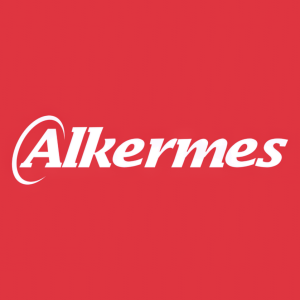Alkermes Announces Positive Topline Results From Vibrance-1 Phase 2 Study of Once-Daily Alixorexton in Patients With Narcolepsy Type 1
Rhea-AI Summary
Alkermes (NASDAQ:ALKS) announced positive topline results from its Vibrance-1 Phase 2 study of alixorexton in patients with narcolepsy type 1 (NT1). The study met its primary endpoint, demonstrating statistically significant improvements in wakefulness across all tested doses (4mg, 6mg, and 8mg) compared to placebo.
The once-daily oral treatment showed clinically meaningful improvements in multiple areas: normalized wakefulness (MWT), reduced excessive daytime sleepiness (ESS), and improved patient-reported outcomes related to disease severity, fatigue, and cognition. The drug was generally well-tolerated, with no serious adverse events reported. Over 95% of participants continued into the seven-week open-label extension.
Based on these positive results, Alkermes plans to advance alixorexton to Phase 3 development for NT1. Detailed results will be presented at the World Sleep Congress in September 2025.
Positive
- Met primary endpoint with statistically significant improvements in wakefulness across all doses (p<0.0001)
- Achieved normative wakefulness scores (mean sleep latency >20 minutes) across all dose groups
- Demonstrated clinically meaningful improvements in excessive daytime sleepiness, fatigue, and cognition
- High patient retention with >95% of participants continuing to open-label extension
- Generally well-tolerated with no serious adverse events reported
Negative
- Most treatment-emergent adverse events reported, though mild to moderate in severity
- Statistical significance for cataplexy improvement achieved only at 6mg dose (p=0.005)
News Market Reaction
On the day this news was published, ALKS declined 8.76%, reflecting a notable negative market reaction. Argus tracked a trough of -14.5% from its starting point during tracking. Our momentum scanner triggered 29 alerts that day, indicating elevated trading interest and price volatility. This price movement removed approximately $463M from the company's valuation, bringing the market cap to $4.82B at that time.
Data tracked by StockTitan Argus on the day of publication.
– Alixorexton Demonstrated Clinically Meaningful and Statistically Significant Improvements in Wakefulness at All Doses Tested Compared to Placebo in Patients With Narcolepsy Type 1 –
– Alixorexton Demonstrated Robust and Consistent Improvements in Patient-Reported Outcomes Related to Disease Severity, Fatigue and Cognition at All Doses Tested –
– Alixorexton Was Generally Well Tolerated at All Doses Tested –
– Detailed Results to Be Presented at Upcoming World Sleep Congress –
– Data Support Advancement of Alixorexton to Phase 3 Development in Narcolepsy –
"These compelling results demonstrated that once-daily alixorexton normalized wakefulness and excessive daytime sleepiness scores in highly symptomatic patients with narcolepsy type 1 with a generally well tolerated profile across all doses tested. In addition, the initial data from patient-reported outcome measures related to fatigue and cognition are truly exciting and highlight the breadth of benefit that alixorexton may provide across multiple facets of narcolepsy. There is a clear and pressing need for new therapies for narcolepsy type 1, as patients continue to face a range of persistent symptoms that disrupt their day-to-day lives," said Giuseppe Plazzi, M.D., Ph.D., Neurologist, Director of the Narcolepsy Center at the IRCCS of the Neurological Sciences of Bologna and Professor of Childhood Neuropsychiatry at the University of Modena and
"Data from Vibrance-1 further characterize the clinical profile of alixorexton across a range of once-daily doses in a multiweek study in patients with narcolepsy type 1. Based on the positive outcomes across multiple symptoms important to patients, we are moving forward expeditiously to initiate a global phase 3 program. We look forward to sharing detailed data from Vibrance-1 at the World Sleep meeting in September," said Craig Hopkinson, M.D., Chief Medical Officer and Executive Vice President, Research & Development at Alkermes. "These positive topline data represent an important stride forward for the alixorexton development program and Alkermes' broader portfolio of orexin 2 receptor agonists. Alkermes is at the forefront of development in this exciting potential therapeutic category, and these data support our hypothesis that the therapeutic potential of orexin 2 receptor agonists extends beyond improvements in wakefulness to other symptoms such as fatigue and cognition in narcolepsy."
Vibrance-1 is a global, randomized, double-blind, placebo-controlled, multiple dose phase 2 study conducted in patients with NT1 (n=92). Patients were randomized (1:1:1:1) to receive a once-daily dose of alixorexton (4 mg, 6 mg or 8 mg) or placebo for six weeks.
Primary Endpoint
- Maintenance of Wakefulness Test (MWT): Across all doses tested, alixorexton demonstrated statistically significant, clinically meaningful and dose-dependent improvements from baseline in mean sleep latency compared to placebo at week six (p<0.0001 at all doses)1.
Key Secondary Endpoints
- Epworth Sleepiness Scale (ESS)2: At all doses tested, alixorexton drove statistically significant and clinically meaningful improvements from baseline in excessive daytime sleepiness compared to placebo on the Epworth Sleepiness Scale at week six (p<0.0001 at all doses).
- Weekly Cataplexy Rates (WCR): Alixorexton numerically improved weekly cataplexy rates across all doses compared to placebo at week six and achieved statistical significance at the 6 mg dose (p=0.005).
Exploratory Patient-Reported Outcome Measures
Alixorexton demonstrated consistent and clinically meaningful improvements across a number of patient-reported outcome measures of symptoms important to patients including, but not limited to, the following (reported p-values are nominal):
- Narcolepsy Severity Scale (NSS)3: Across all doses tested, alixorexton demonstrated clinically meaningful improvements from baseline in narcolepsy symptom severity as compared to placebo at week six (p<0.001 at all doses).
- British Columbia Cognitive Complaints Inventory (BC-CCI)4: Across all doses tested, alixorexton demonstrated clinically meaningful improvements from baseline in cognitive complaints compared to placebo at week six (p<0.0001 at all doses).
- PROMIS (Patient-Reported Outcomes Measurement Information System)-Fatigue5: Across all doses tested, alixorexton demonstrated clinically meaningful improvements from baseline in fatigue as compared to placebo at week six (p<0.01 at all doses).
Alixorexton was generally well tolerated across all doses tested in the randomized double-blind period of the Vibrance-1 study. No treatment-emergent serious adverse events were reported. Most treatment-emergent adverse events (TEAEs) were mild to moderate in severity and were generally consistent with the events observed across the alixorexton phase 1 program in healthy volunteers and patients with NT1, NT2 and IH. There were no treatment-related safety signals observed in hepatic and renal parameters, vital signs, or ophthalmic exams. More than
Alkermes plans to present detailed safety and efficacy results from the Vibrance-1 phase 2 study in an oral presentation at the upcoming World Sleep Congress, taking place Sept. 5-10, 2025 in
About the Vibrance-1 Phase 2 Study (NCT06358950)
Vibrance-1 is a phase 2, randomized, double-blind, dose-range-finding, placebo-controlled study evaluating the safety and efficacy of alixorexton (formerly referred to as ALKS 2680) in adults with narcolepsy type 1 (NT1). Participants (n=92) were randomized to receive one of three doses of alixorexton (4 mg, 6 mg or 8 mg) or placebo to be taken once-daily for six weeks. The primary endpoint assessed whether participants taking alixorexton experienced an improvement in wakefulness compared to participants taking placebo, as measured by the change from baseline in mean sleep latency on the maintenance of wakefulness test (MWT) at week six. Secondary endpoints included change from baseline in Epworth Sleepiness Scale (ESS) score and mean weekly cataplexy rate (WCR) at week six, and incidence of adverse events. The study also included a number of patient-reported outcome measures, which evaluated the effect of alixorexton on participants' disease severity, fatigue and cognition. All participants in the double-blind portion of the study were eligible to continue to a seven-week open-label safety extension portion of the study, followed by a long-term safety study.
About Alixorexton
Alixorexton (formerly referred to as ALKS 2680) is a novel, investigational, oral, selective orexin 2 receptor (OX2R) agonist in development as a once-daily treatment for narcolepsy type 1 (NT1), narcolepsy type 2 (NT2) and idiopathic hypersomnia (IH). Orexin, a neuropeptide produced in the lateral hypothalamus, is considered to be the master regulator of wakefulness due to its activation of multiple, downstream wake-promoting pathways that project widely throughout the brain.6 Targeting the orexin system may address excessive daytime sleepiness across hypersomnolence disorders, whether or not deficient orexin signaling is the underlying cause of disease.7 Once-daily oral administration of alixorexton was previously evaluated in a phase 1 study in healthy volunteers and patients with NT1, NT2 and IH, and is currently being evaluated in the phase 2 Vibrance-1, Vibrance-2 and Vibrance-3 studies in patients with NT1, NT2 and IH, respectively.
About Alkermes plc
Alkermes plc is a global biopharmaceutical company that seeks to develop innovative medicines in the field of neuroscience. The company has a portfolio of proprietary commercial products for the treatment of alcohol dependence, opioid dependence, schizophrenia and bipolar I disorder, and a pipeline of clinical and preclinical candidates in development for neurological disorders, including narcolepsy and idiopathic hypersomnia. Headquartered in
Note Regarding Forward-Looking Statements
Certain statements set forth in this press release constitute "forward-looking statements" within the meaning of the Private Securities Litigation Reform Act of 1995, as amended, including, but not limited to, statements concerning: the potential therapeutic and commercial value of alixorexton (formerly referred to as ALKS 2680) and the company's expectations regarding the alixorexton development program. The company cautions that forward-looking statements are inherently uncertain. Although the company believes that such statements are based on reasonable assumptions within the bounds of its knowledge of its business and operations, the forward-looking statements are neither promises nor guarantees and they are necessarily subject to a high degree of uncertainty and risk. Actual performance and results may differ materially from those expressed or implied in the forward-looking statements due to various risks and uncertainties. These risks and uncertainties include, among others: whether initial clinical results for alixorexton will be predictive of results of future stages of ongoing clinical studies, future clinical studies or real-world results; whether ongoing or future clinical studies for alixorexton will be initiated or completed on expected timelines or at all; whether alixorexton could be shown to be ineffective or unsafe; potential changes in the cost, scope and duration of the alixorexton development program; and those risks and uncertainties described under the heading "Risk Factors" in the company's Annual Report on Form 10-K for the year ended Dec. 31, 2024 and in subsequent filings made by the company with the U.S. Securities and Exchange Commission (SEC), which are available on the SEC's website at www.sec.gov. Existing and prospective investors are cautioned not to place undue reliance on these forward-looking statements, which speak only as of the date hereof. Except as required by law, the company disclaims any intention or responsibility for updating or revising any forward-looking statements contained in this press release.
1 All p-values presented are unadjusted for multiplicity.
2 Epworth Sleepiness Scale: 8-item self-administered questionnaire that measures severity of excessive daytime sleepiness across multiple conditions over the past 7 days (≤10 = normative).
3 Narcolepsy Severity Scale: 15-item self-administered questionnaire (score: 0-57) that assesses the severity and consequences of the five major narcolepsy symptoms such as daytime sleepiness, cataplexy, hallucinations, sleep paralysis, and disturbed nighttime sleep over the past 7 days.
4 British Columbia Cognitive Complaints Inventory: 6-item self-administered questionnaire (score: 0-18) assessing perceived problems with concentration, memory, expressing thoughts, word finding, slow thinking, and difficulty solving problems over the past 7 days.
5 PROMIS Fatigue: 6-item self-administered questionnaire designed to assess a patients' fatigue over the past 7 days.
6 Buysse, D. Diagnosis and assessment of sleep and circadian rhythm disorders. Journal of Psychiatric Practice. 2005; 11(2):102-115
7 Ten-Blanco M, Flores A, Cristino L, Pereda-Perez I. Targeting the orexin/hypocretin system for the treatment of neuropsychiatric and neurodegenerative diseases: From animal to clinical studies. Frontiers in Neuroendocrinology. 2023;69(101066). https://www.sciencedirect.com/science/article/pii/S0091302223000146
Alkermes Contacts:
For Investors: Sandy Coombs, +1 781 609 6377
For Media: Gretchen Murphy, +1 781 609 6419
![]() View original content to download multimedia:https://www.prnewswire.com/news-releases/alkermes-announces-positive-topline-results-from-vibrance-1-phase-2-study-of-once-daily-alixorexton-in-patients-with-narcolepsy-type-1-302509211.html
View original content to download multimedia:https://www.prnewswire.com/news-releases/alkermes-announces-positive-topline-results-from-vibrance-1-phase-2-study-of-once-daily-alixorexton-in-patients-with-narcolepsy-type-1-302509211.html
SOURCE Alkermes plc








